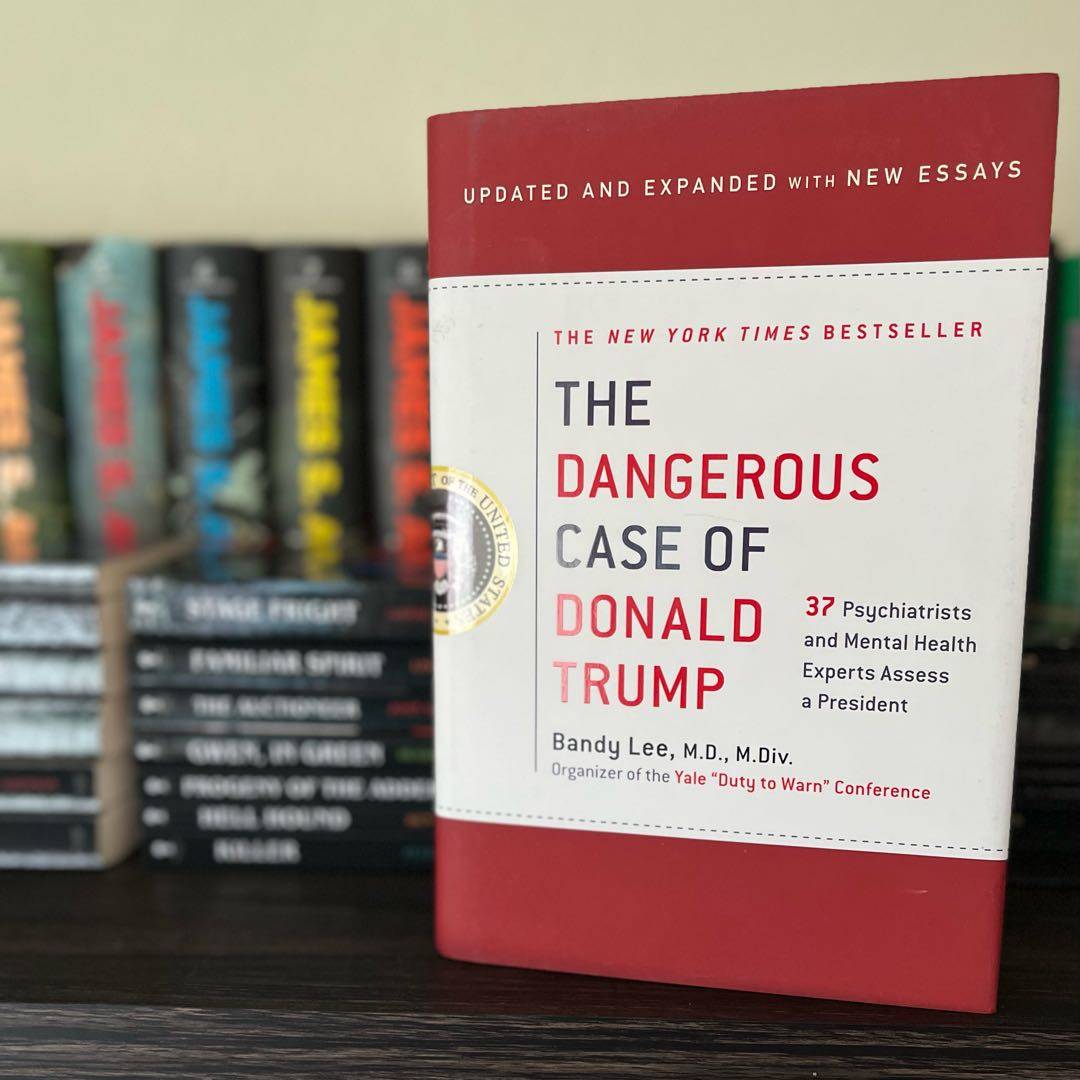
Well-written and illuminating. At the same time, I don‘t think anyone will be surprised by the findings in this book.

Well-written and illuminating. At the same time, I don‘t think anyone will be surprised by the findings in this book.
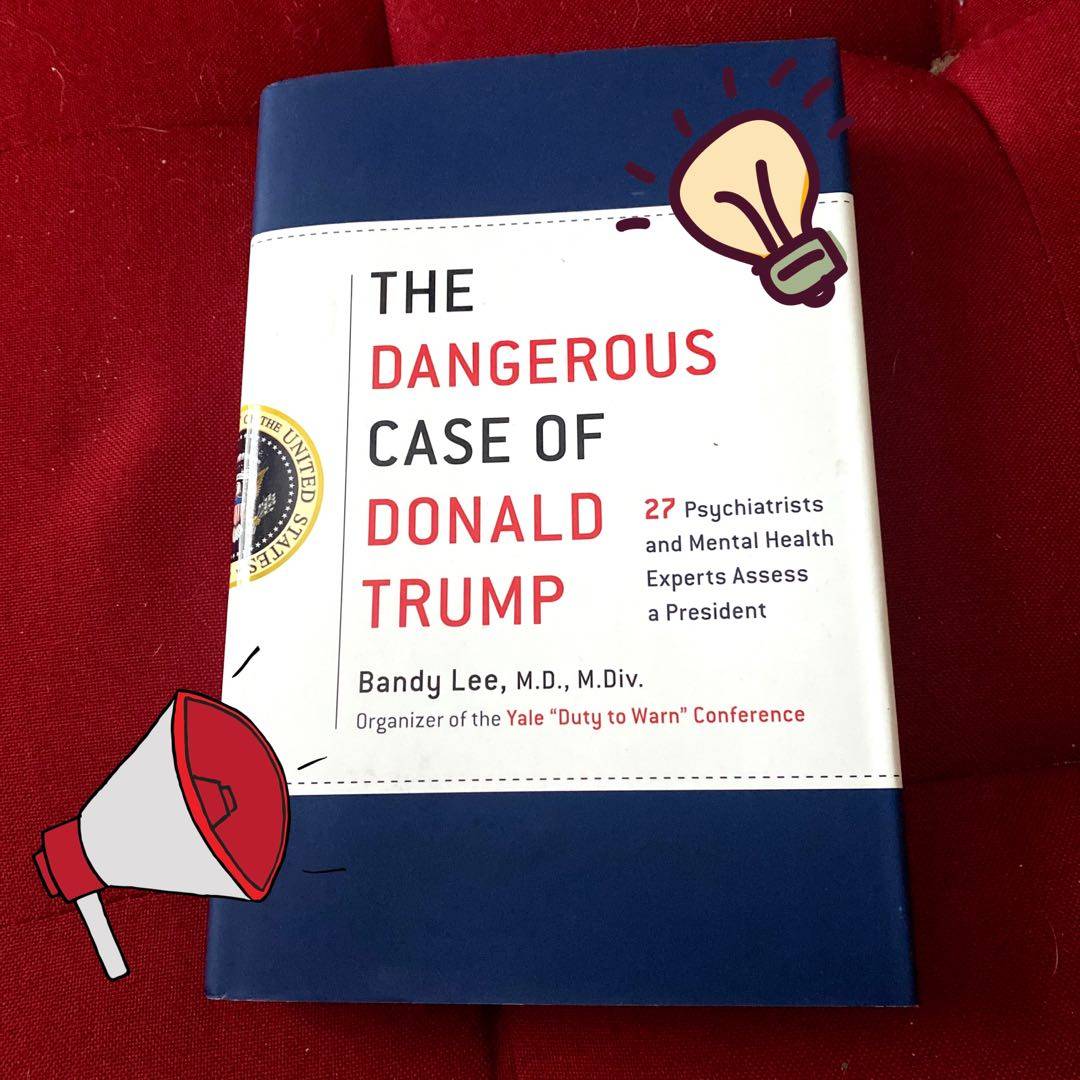
Picked this up today.
Everyone knew who he was. He showed and told everyone who he was from the beginning. He‘ll always be a monster. Please vote with me this November.
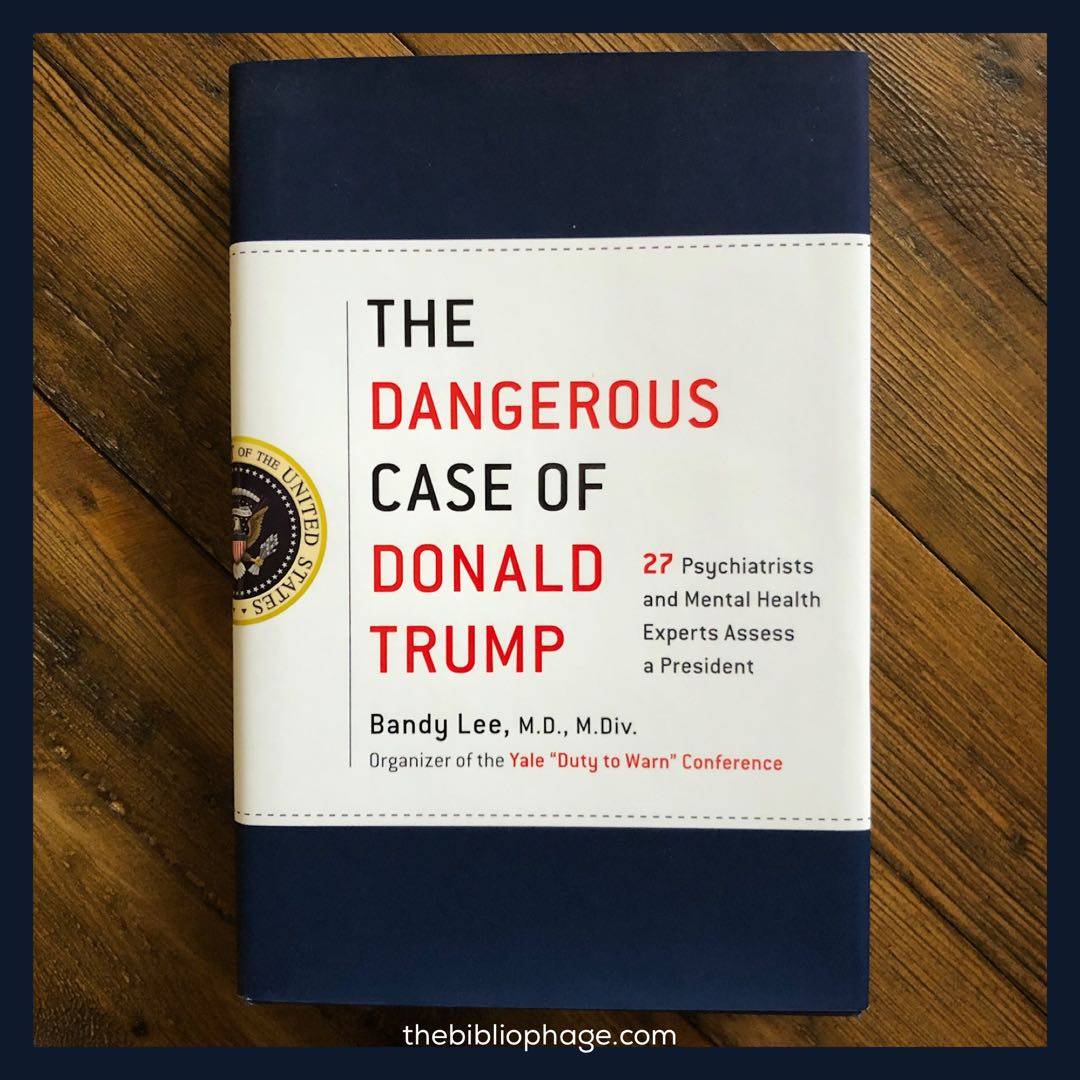
These essays are written by psychiatrists and other mental health professionals. Collectively, their qualifications are both boundless and stellar. No crackpots. And they make it clear they are not diagnosing 45. Instead, they are discussing whether he could be a danger to himself or others. Recommended for anyone with a strong stomach.
Full review www.TheBibliophage.com
#thebibliophage2109
#nonfiction2019 #somethingwithanunlikablecharacter
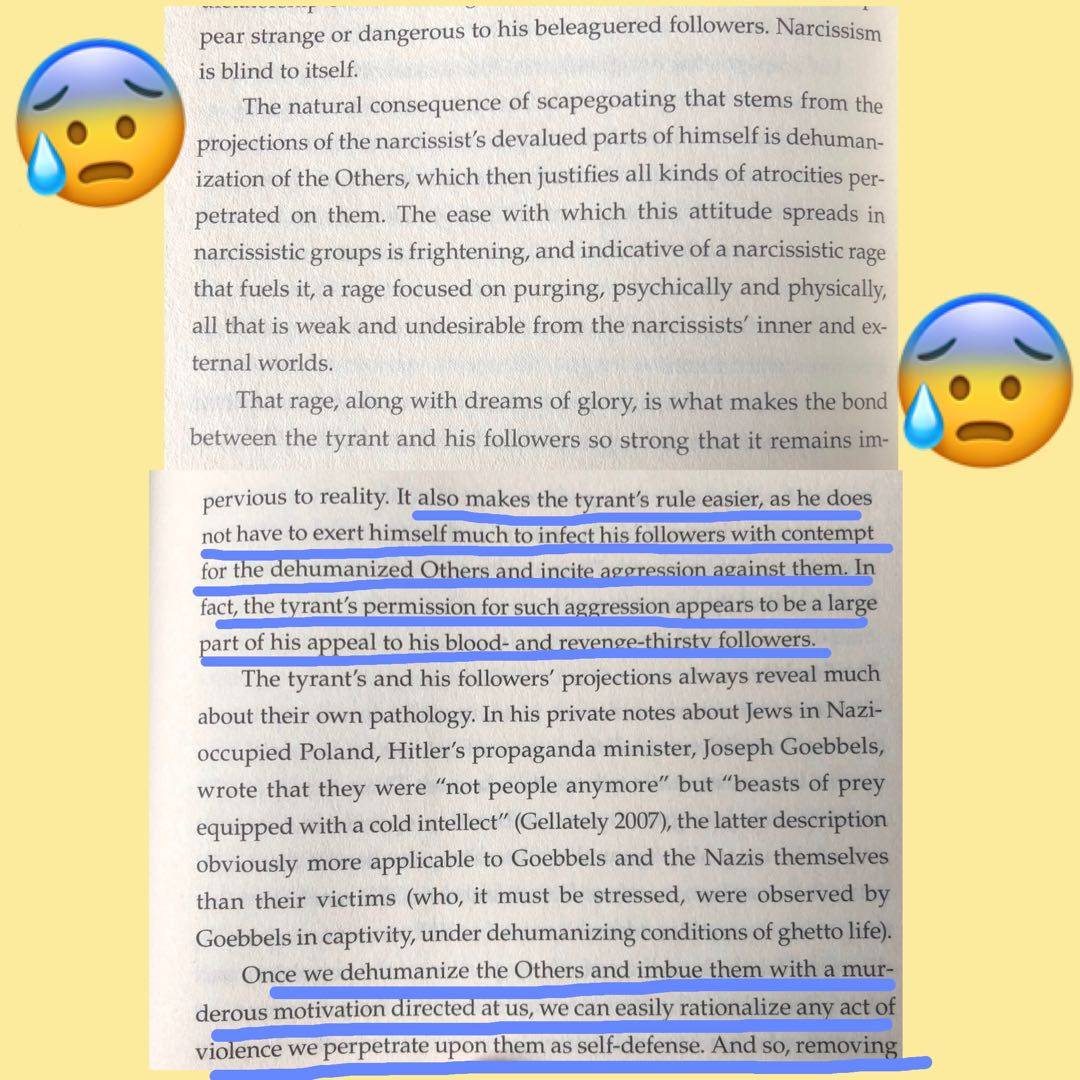
I‘ve avoided posting quotes from this book because they can be so distressing for people. It‘s a group of hard-to-read, but vital essays in understanding 45. I can only manage one, sometimes two, a day. Today‘s essay talks about tyrants, their followers, and the society around them. It helps me understand things, especially after the horrible events in Christchurch yesterday.
#readersresist #resistlist #themoreyouknowthemoreyouresist
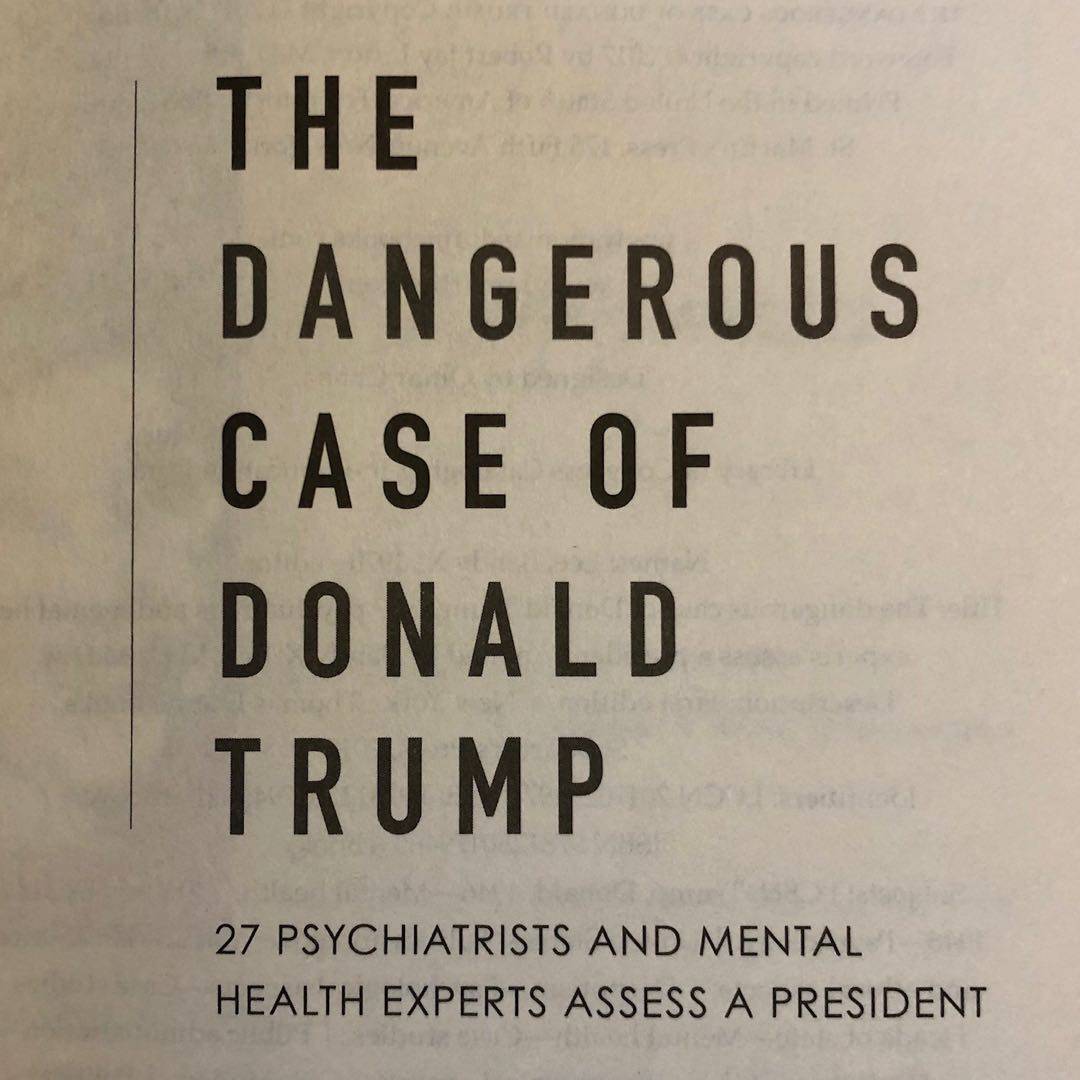
After reading some excerpts (link ⬇️) from his speech yesterday to CPAC, I realized that now is the time to read this book on my shelf. I had intended to alternate its chapters with my Obama speeches book, and hey, I‘m reading that now also. So, I‘m going in this morning.
It‘s important to note that these mental health professionals aren‘t diagnosing 45. They are assessing whether he‘s a danger to himself, the people around him, and the nation.
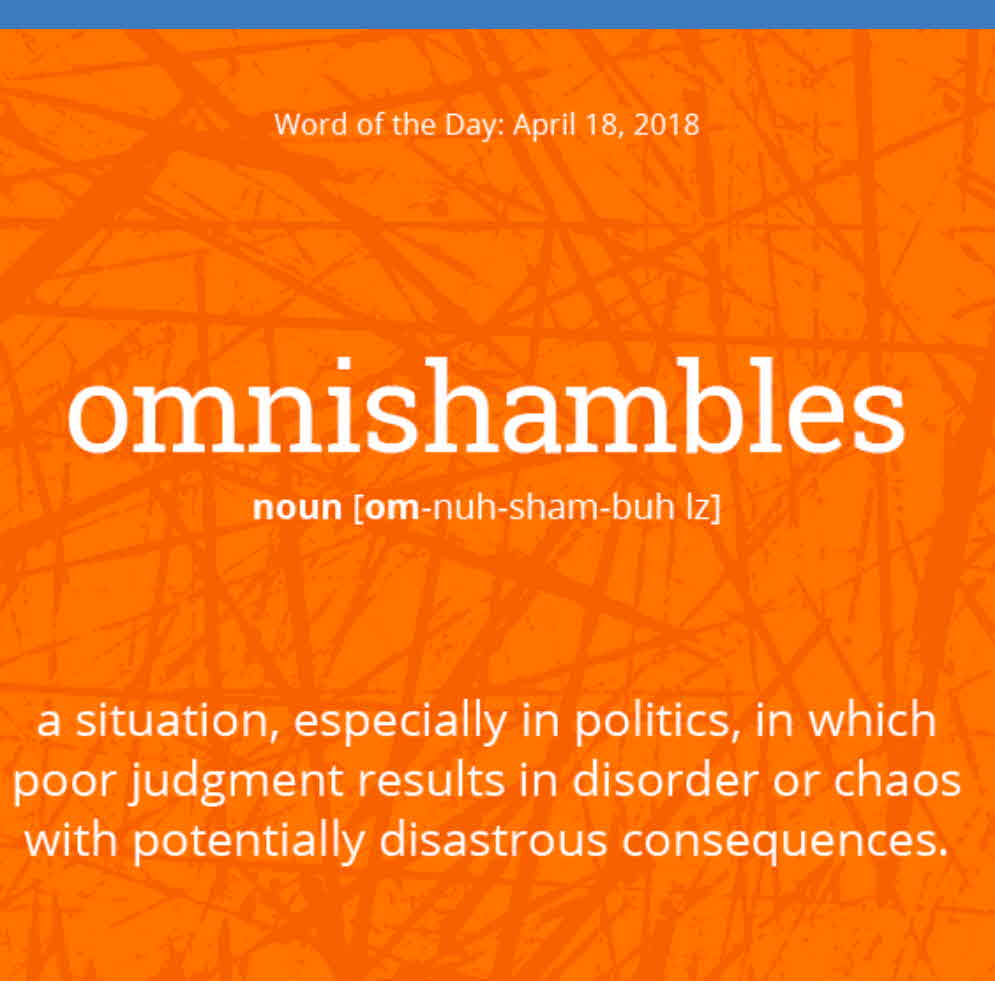
It might be just me but I think my dictionary app is concerned about the state of affairs in our country...
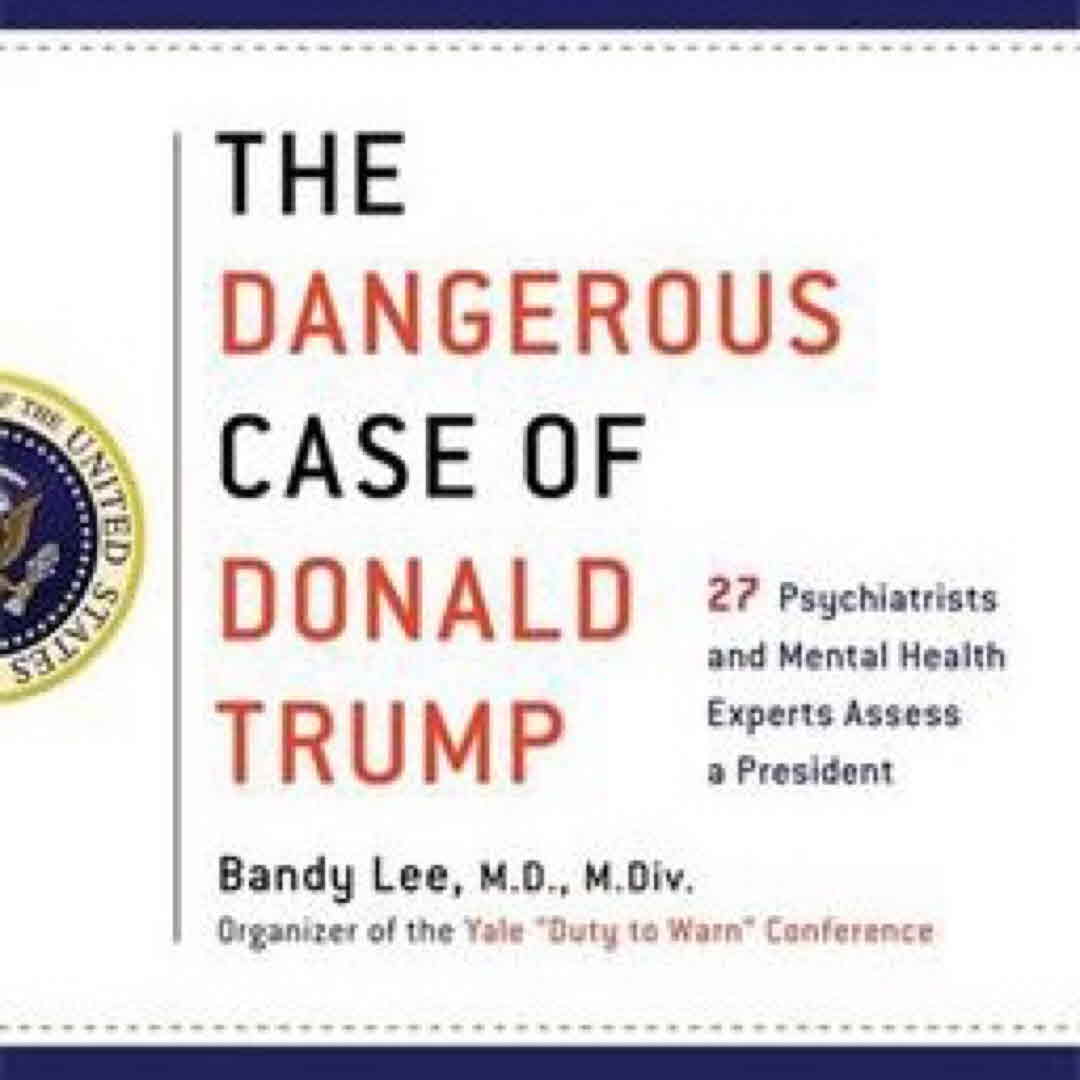
This is a series of essays on various psychological issues which are then connected to DT. They try not to make any direct statements, but lay out here is what narcissism is (for example), here are some signs, and here is some evidence we have around DT. Some are old essays. The scary thing is, this was published October of last year and it has gotten worse. A truly scary book.
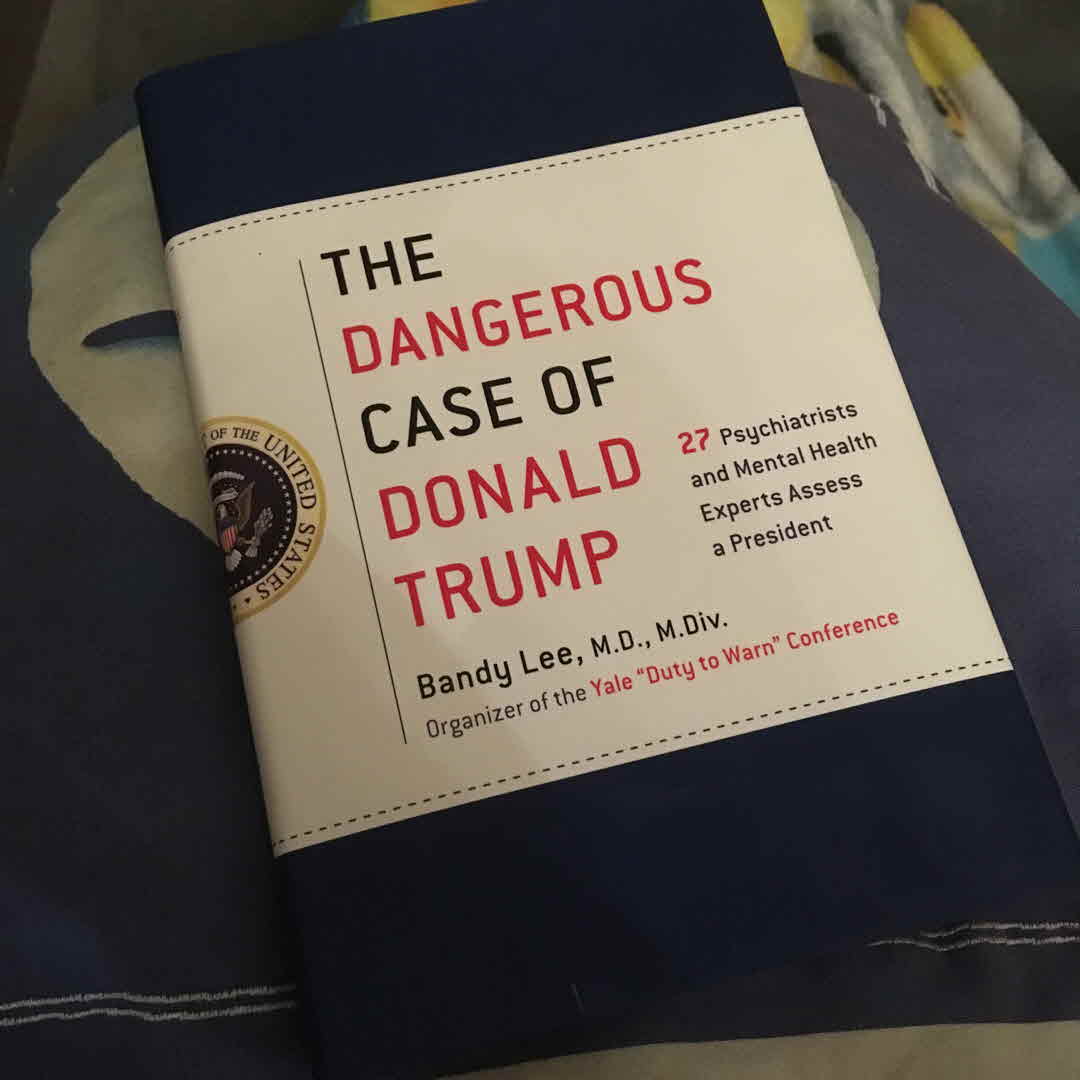
A group of mental health professionals has come together to assess their concerns about 45 while balancing the avoidance of diagnosing someone they have not directly encountered and the professional duty to warn. I appreciated the variety of approaches and essays here. I had to take breaks from it, though, to maintain my own sanity.
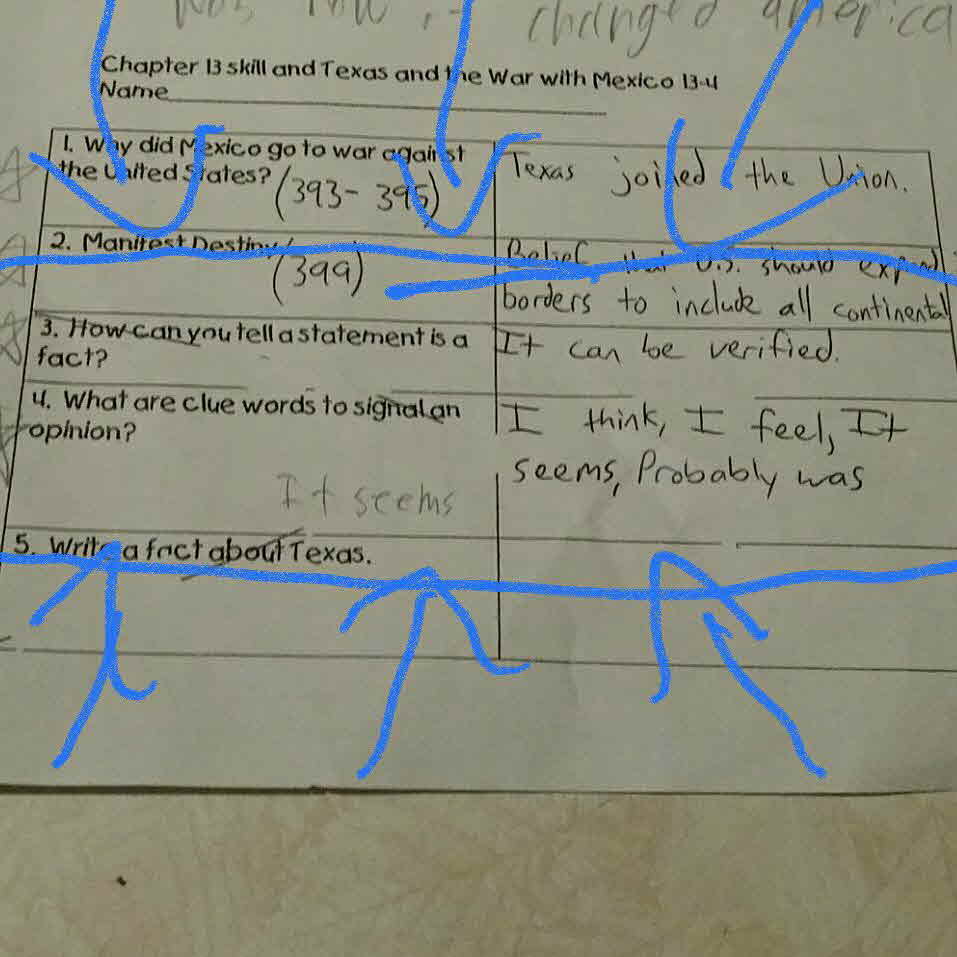
My two eldest never had to study this that I remember. It could be just me but it seems our poltical climate has reached the schools.
Also my 16yr told me he learned about the 25th amendment this year. When I asked why he said, "well had Kennedy lived we might have had to use it." Uhhh huh is all I said...
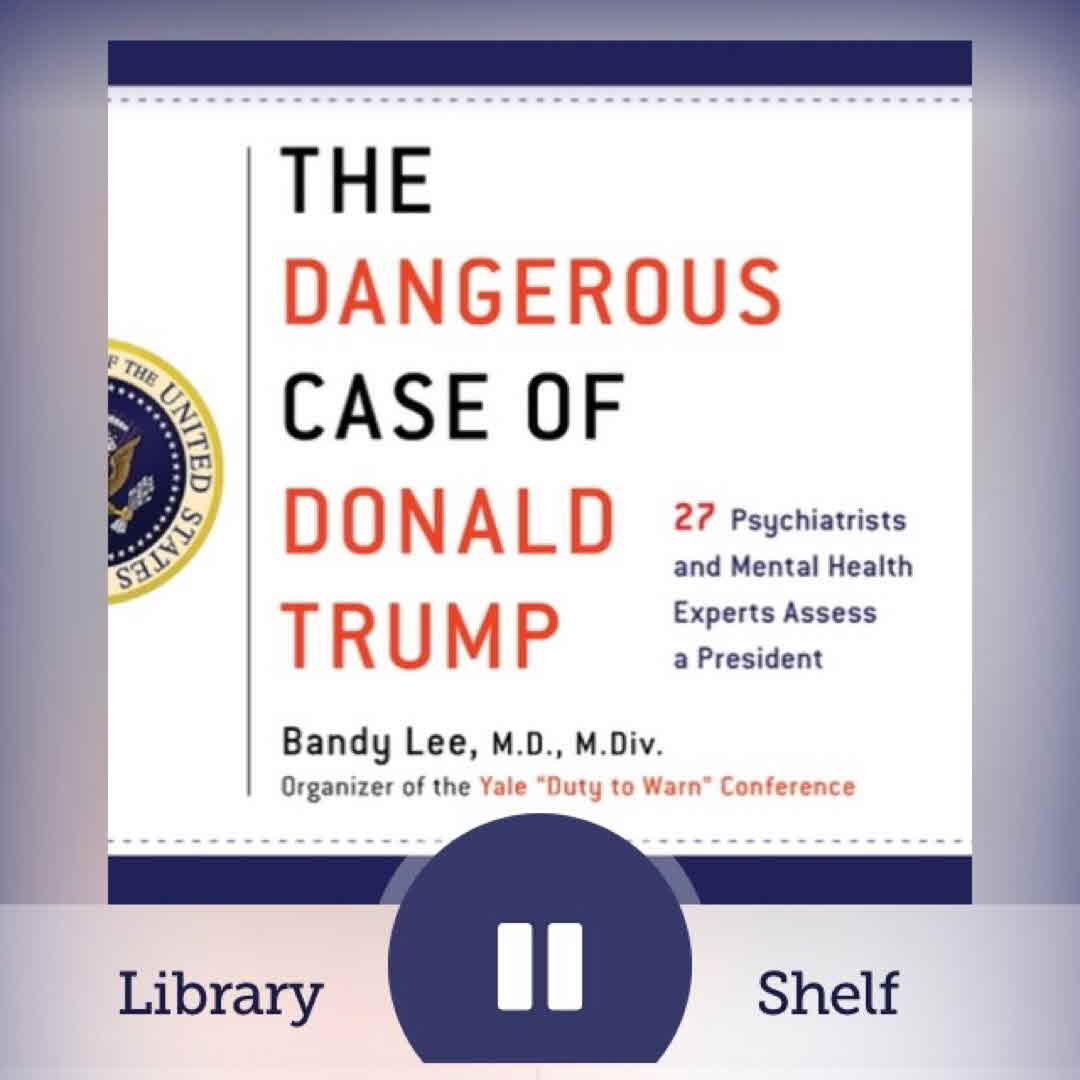
#CurrentlyListening — the explanation of “malignant normality” and psychologists‘ duty as “witnessing professionals” are particularly riveting. (And I believe the 10-minute cognitive test given to the president this week was given to him at a time and place and under circumstances that would show him in his very best light... unlike the real life circumstances we witness every day...)
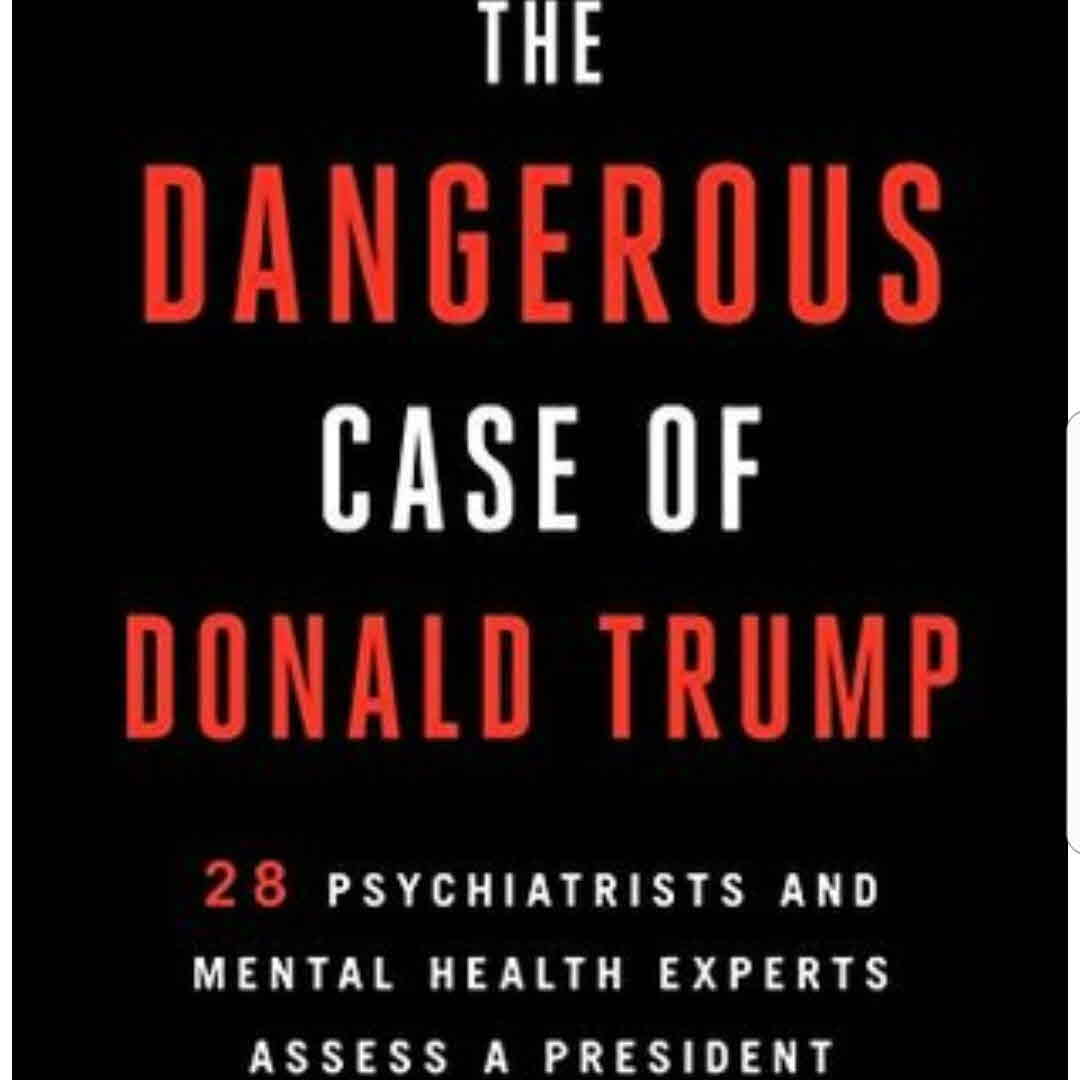
Day 4 of #ReindeerReads is a #dangerous book... the fact that this book was written is dangerous.
Does one need it confirmed by twenty-seven separate psychiatrists that Donald Trump is a delusional narcissist? Isn't that obvious? It is, but despite the repetitive and obvious content of this book, it is both interesting and highly important.
Delicate are the dynamics and nuanced are the judgments that may keep the world safe or plunge it into the abyss.
Commenting on the choices to disclose top-secret information to the Russians, to be the first to congratulate President Erdogan for a disputed election victory that shrank democratic processes in Turkey, and to praise and invite to the White House President Duterte, widely blamed for thousands of extrajudicial killings in the Philippines, political commentator and journalist Eugene Robinson summarized it well: “He conflates power with virtue.”
Often as therapists we are called on to help our patients see that their life circumstances are not as catastrophic as they might feel. In the case of Trump, however, our job is the opposite: to warn the public that the election of Donald Trump is a true emergency, and that the consequences most likely will be catastrophic.
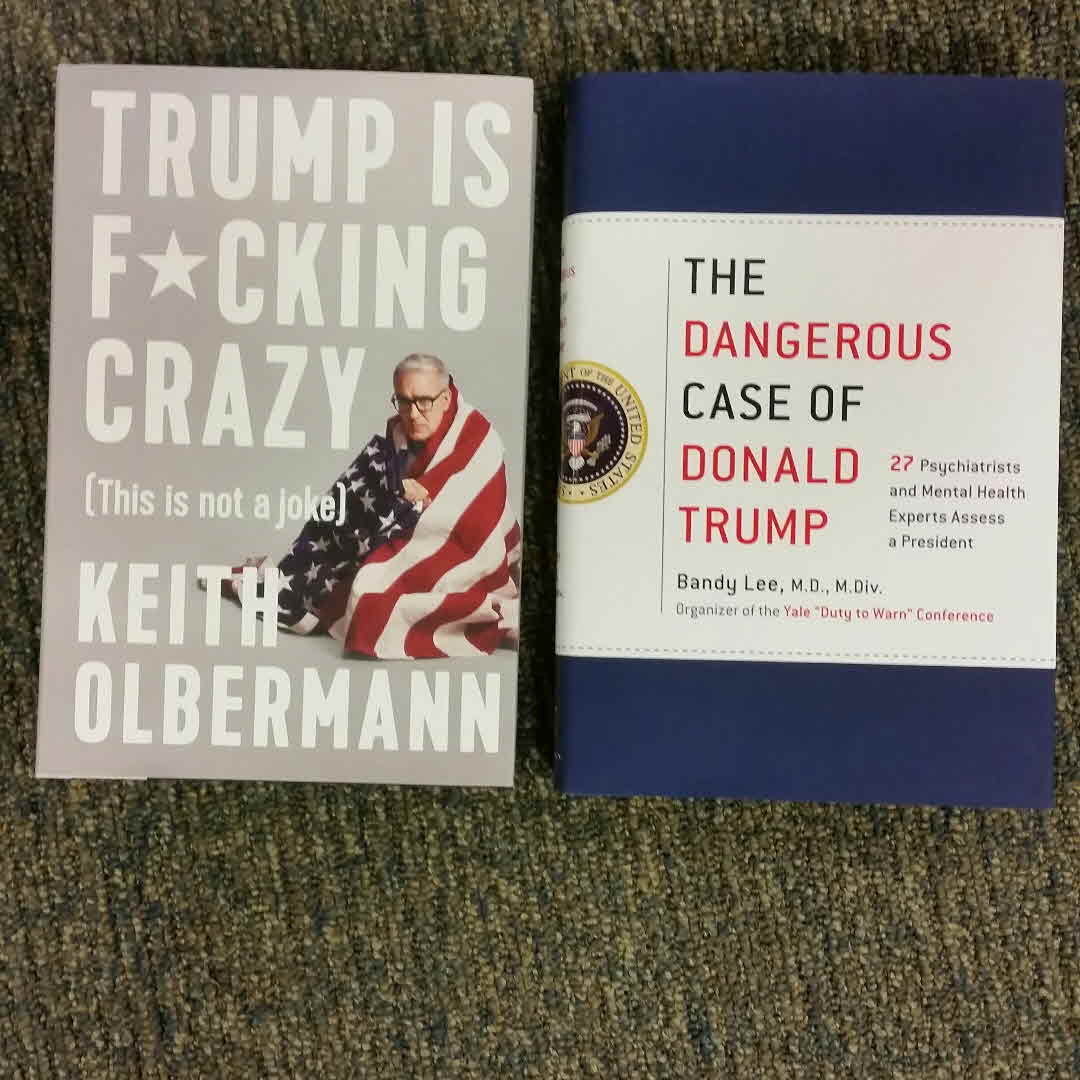
Here is how George Orwell, in 1984, imagined the exploitation of those most subject to intoxication with an authoritarian leader like Trump:
In a way, the world-view of the Party imposed itself most successfully on people incapable of understanding it. They could be made to accept the most flagrant violations of reality, because they never fully grasped the enormity of what was demanded of them … They simply swallowed everything.
When Donald Trump was asked in 2016 while he was running for office what his father would have said about him running for president, he said, “He would have absolutely allowed me to have done it.” Allowed?? Despite being seventy years old, Trump answered as if he were an adolescent in an oedipal battle with his father who had died seventeen years earlier.
This is time and energy I could be spending championing worthy causes. In fact, here I am, writing about Trump‘s mental health when, with a different person in office, I could be working to improve the mental health care system. This narcissistic president is doing what all narcissists do: sucking the air out of the room. One must spend one‘s time and energy arguing about the arguing, rather than living peacefully and productively.
When the Japanese prime minister visited, the discussion about Trump‘s bizarrely aggressive handshaking style overtook talk of trade deals or North Korea. Antarctic ice shelf breaking off? Wars, refugees, the European Union in turmoil? These issues receive inadequate attention because the world is trying to make sense of the attention-seeking distraction in the White House.
Other-blamers often have difficulty attuning to the emotional status of others because, as one Other-blamer admitted in a rare moment of self-awareness, “I care more about being right than doing the right thing for the relationship.” And this is exactly what is happening in Trump‘s relationship with America. He cares far more about sheltering his fragile psyche than doing what is right for the country.
I have often said we should not be diagnosing those who come into therapy but, rather, those who caused them to come to therapy.
If we are silent about the numerous ways in which Donald Trump has repeatedly threatened violence, incited violence, or boasted about his own violence, we are passively supporting and enabling the dangerous and naïve mistake of treating him as if he were a “normal” president or a “normal” political leader. He is not, and it is our duty to say so, and to say it publicly. He is unprecedentedly and abnormally dangerous.
The US has had a little over two centuries of democracy. That's actually a short period compared with the millennia of monarchy. However, it is long enough to have made most of us complacent, and perhaps overconfident, with respect to the stability of our democracy. In fact, if we are prone to making a mistake in this regard, we are far more likely to underestimate the fragility of democracy than we are to become unnecessarily alarmist about it.
While it is true that the restraints operating in our country have prevented Trump from moving as swiftly as Hitler did, this can be attributed to the balance of powers and the greater strength of our democratic traditions rather than to any sense that Trump‘s patterns of emotional thinking are greatly different from those that motivated Hitler.
Nothing prepared me for Trump's presidential campaign, which started with a ride down an escalator. Perhaps the symbolism was prophetic: instead of ascending to the heights, he was descending to the depths, and taking us all with him.
Manics display something called “flight of ideas.” It‘s a formal thought disorder in which ideas tumble forth through a disordered chain of associations. One word sparks another, which sparks another, and they‘re off to the races. As one trained psychiatrist said to me, compare Donald Trump‘s speaking patterns to a Robin Williams monologue, but with insults instead of jokes. --David Brooks
Even more worrisome is that Donald Trump himself did not understand that there are three branches of the federal government and that judges cannot simply “sign bills into law.” During a late campaign interview he was unaware that Russia had not only invaded but had been occupying Crimea for two years. In his first global tour, he commented that he was happy to be in Israel after coming from the Middle East.
Trump would see no contradiction at all in changing his story in why he fired Comey and thereby undermining the statements of his aides, or in any other lie he tells. His aim is never accuracy; it's domination.
As Rob Reiner put it on Real Time With Bill Maher, "People don't understand why Trump doesn't just stop acting mentally ill. Why can't he just stop being mentally ill?" Why? Because his illness is not a ruse. It can't just be turned off when it's inconvenient.
Trump vowed that if he were elected, "you'll find out who really knocked down the World Trade Center."
In the same week, both the New York Times and the Washington Post ran front-page stories on Trump as a conspiracy theorist. Before the election, Right Wing Watch accumulated a list of fifty-eight conspiracies that Trump had proclaimed or implied were true.
If all that matters to a pathologically narcissistic leader is any action that preserves their special status (at least in their mind), then reality, circumstance, and facts cease to matter. Which means that what a leader says from day to day or even hour to hour may shift based on what feels best, not what‘s best for the country.
When it comes to the question of whether or not someone who‘s mentally ill can function, danger is the key—to self or others. This is where pathological narcissism and politics can indeed become a toxic, even lethal, mix. When peace at home and abroad are at stake—not just the feelings of coworkers, friends, or partners—pathological narcissism unchecked could lead to World War III.
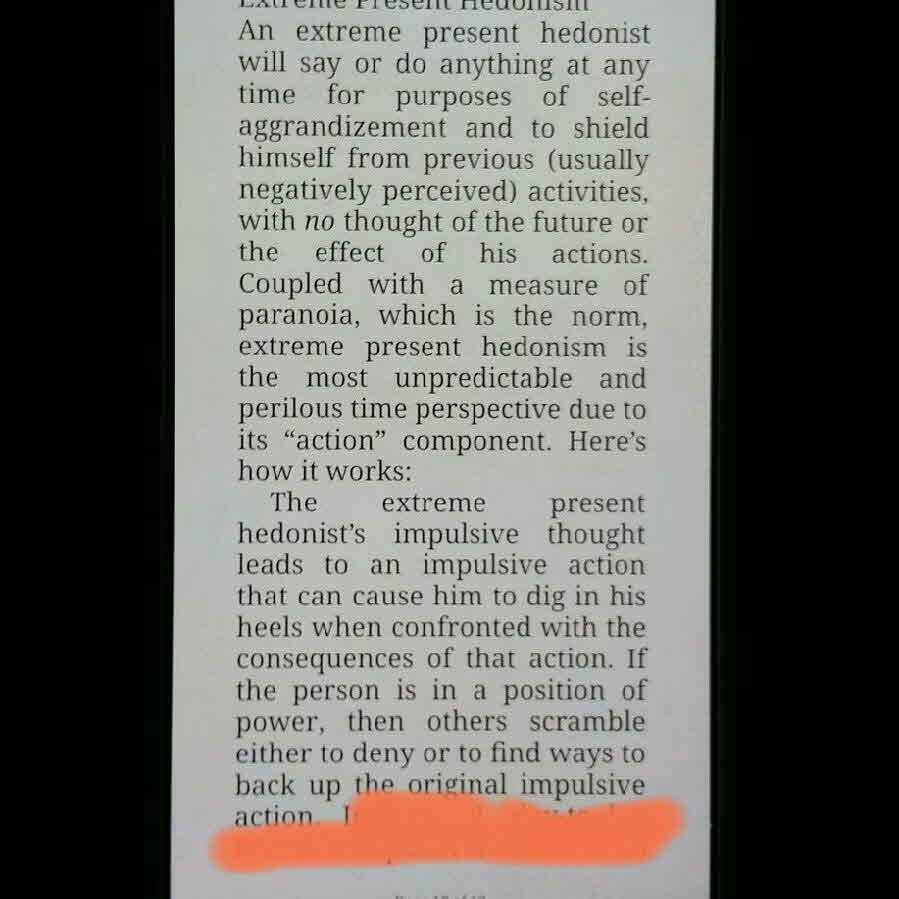
I've been using the color orange for obvious reasons.
Possibly the oddest experience in my career as a psychiatrist has been to find that the only people not allowed to speak about an issue are those who know the most about it.
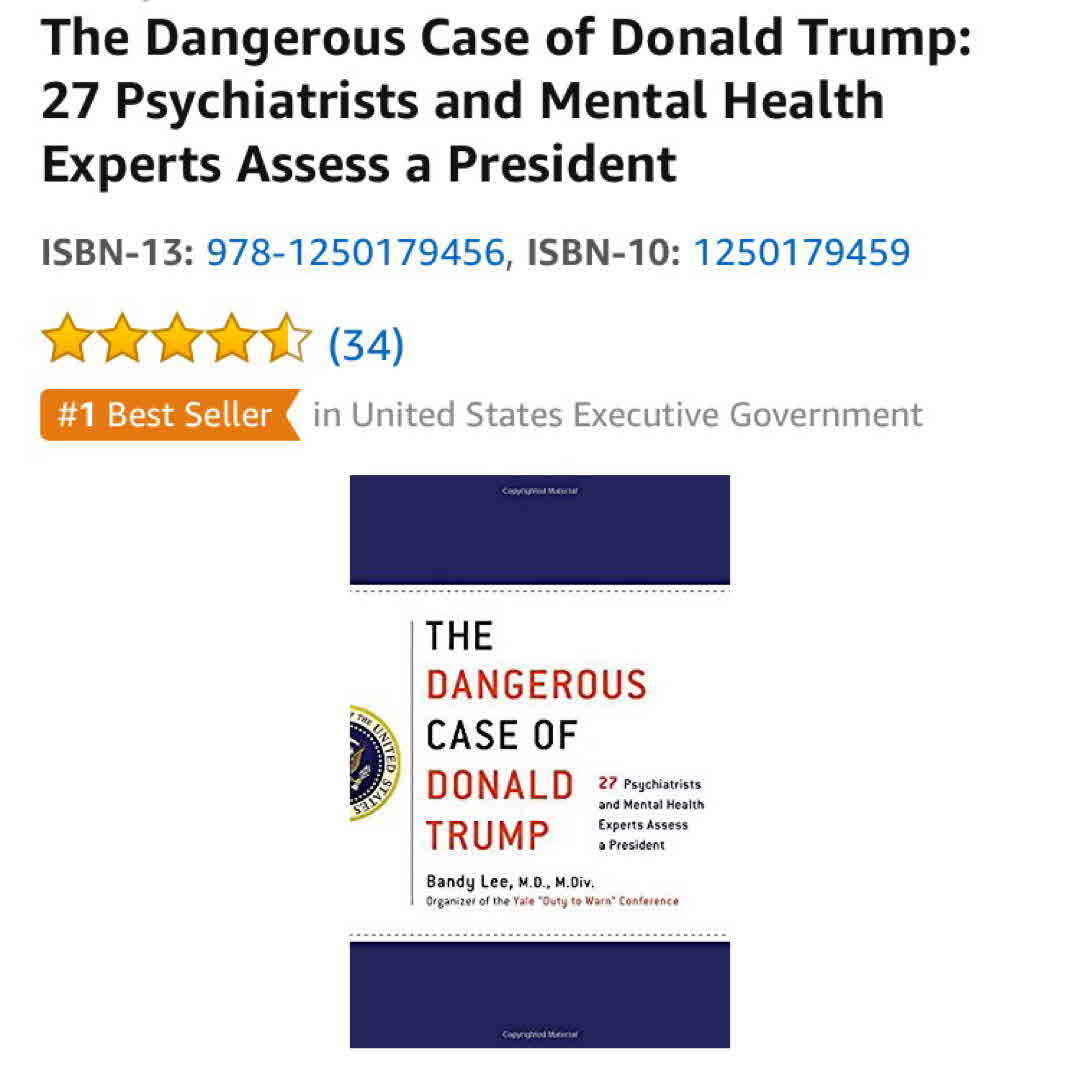
I'm hoping to find this book at Chapters in the next few weeks. I'm not a huge fan of fiction normally, but this is just too good to pass up.